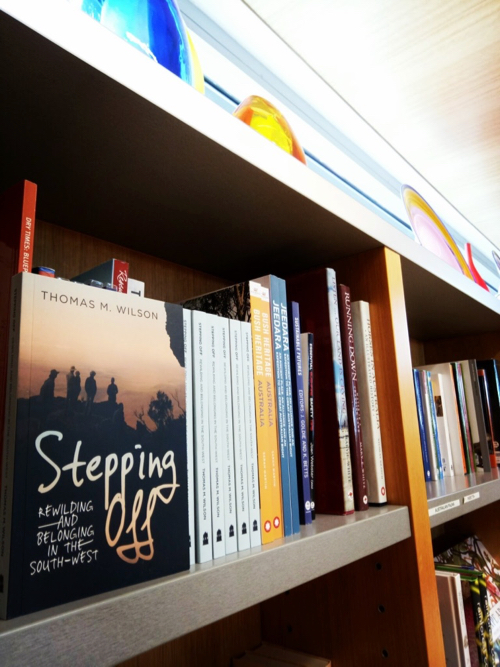Why bother to tell the history of the plants and animals that make up my home in Western Australia? Partly its about reminding us of what was here on the land before, and in some ways, could be here again.
In answering this question I’d like to quote the full text of Henry David Thoreau’s March 23, 1856, journal entry:
“I spend a considerable portion of my time observing the habits of the wild animals, my brute neighbors. By their various movements and migrations they fetch the year about to me. Very significant are the flight of geese and the migration of suckers, etc. But when I consider that the nobler animals have been exterminated here, the cougar, panther, lynx, wolverene, wolf, bear, moose, deer, beaver, turkey, etc., etc., I cannot but feel as if I lived in a tamed and, as it were, emasculated country. Would not the motions of those larger and wilder animals have been more significant still? Is it not a maimed and imperfect nature that I am conversant with? As if I were to study a tribe of Indians that had lost all its warriors. Do not the forest and the meadow now lack expression? now that I never see nor think of the moose with a lesser forest on his head in the one, nor of the beaver in the other? When I think what were the various sounds and notes, the migrations and works, and changes of fur and plumage which ushered in the spring, and marked the other seasons of the year, I am reminded that this my life in nature, this particular round of natural phenomena which I call a year, is lamentably incomplete. I listen to a concert in which so many parts are wanting. The whole civilized country is, to some extent, turned into a city, and I am that citizen whom I pity. Many of those animal migrations and other phenomena by which the Indians marked the season are no longer to be observed. I seek acquaintance with nature to know her moods and manners.
Primitive nature is the most interesting to me. I take infinite pains to know all the phenomena of the spring, for instance, thinking that I have here the entire poem, and then, to my chagrin, I learn that it is but an imperfect copy that I possess and have read, that my ancestors have torn out many of the first leaves and grandest passages, and mutilated it in many places. I should not like to think that some demigod had come before me and picked out some of the best of the stars. I wish to know an entire heaven and an entire earth. All the great trees and beasts, fishes and fowl are gone; the streams perchance are somewhat shrunk.”

